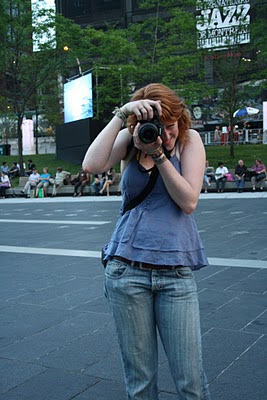I'm thrilled to feature a guest post from ps pirro, one of my favorite bloggers, a longtime online friend, and author of one of my favorite unschooling books, 101 Reasons Why I'm An Unschooler. I hope you enjoy this article on food and freedom as much as I do!
-----------
“If people lose their ability to feed themselves, how can they be said to be free?”
~Kentucky farmer & writer Wendell Berry
I’m not the first writer to point out that, prior to the last century, most of what we ate came directly to our tables from the ground, from the trees, and from the animals with whom we shared the planet. Nor is it a revelation to note that this is no longer the case, that most of our food now comes from a factory, from a chemist’s lab, from vertically integrated corporate interests.
You and I didn’t choose this arrangement, of course. It preceded us. But, oddly enough, the generations before us didn‘t exactly chose it, either. What they chose -- and what many people today keep on choosing -- was something this arrangement seemed to offer: Freedom.
As Ben Hewitt, author of The Town that Food Saved, wrote, over the course of the last century, our culture made a bargain with the food industry. We turned over the growing, raising, processing and delivery of our food to business interests, and in return we were liberated (most of us, anyway) from the dirt, manure, fickle weather, hot sun, long hours and manual labor of farming.
We gained lives of clean fingernails and shoes that never touched mud. We gained a professional class, a middle class, leisure time, and abundance. We gained well-stocked supermarkets and full refrigerators, and the cost of food as a percentage of the household budget went down every year.
What we gained looked a lot like freedom. Fifty years ago, it seemed like a pretty good bargain.
Today it looks like a Faustian pact.
It’s not just that the average morsel of food on our plates now travels 1200 miles to get to us, or that it takes eleven calories of fossil fuel energy to give us one calorie of food energy. It’s not just the travesty of factory-farmed beef and chickens and hogs, or the loss of topsoil from over-plowing or the salinization and desertification from over-irrigating. All those things matter, but there is more.
The bargain we struck in the name of freedom has returned to haunt us on a fundamental level: it has undermined our sense of what it means to be us.
The food we eat is our most intimate connection to the world. It’s what becomes us. It is us. It’s us as individuals, and it’s us as a culture.
When industrial food producers say, “We’ll make dinner,” they are asking us to relinquish that intimate connection. To sever our taproot. To become commodities eating commodities. They’re also asking us to trust that their priorities as producers are aligned with our own as eaters. That’s where the Faustian part of the bargain comes in. Because the priorities of the industrial food producers have never been aligned with our own. Industrial food producers have always been less concerned with our health and vitality -- and the health and vitality of the world in which we live -- than they are with our appetites. It’s our appetites they aim to feed, not our deeply rooted need to be nourished.
Undoing the Faustian bargain doesn’t mean we all have to become farmers, but it does mean drawing the food loop a little -- or a lot -- closer to home. It means educating ourselves about where the stuff we put on our plates comes from, how it’s grown, who grows it and how it reaches us -- and then acting on that awareness. It means entering into relationship with our food and with those who grow it, something best done locally, right where we are.
When we break away from industrial food -- even one small step at a time, at the weekly farmers market or in a backyard garden -- we regain some of what was lost in that Faustian bargain: a sense of where we come from, and what we’re made of, and made from, and how we’re a part of the soil and the air and the water, as it is a part of us. We regain not just our sense of connection, but the actual connection itself, becoming that which we partake of, drawing into ourselves the stuff of our particular place on Earth.
And that connection, created and sustained in the face of all that divides us, might prove to be the most freeing thing of all.
You did not come into this world, you came out of it, like a wave from the ocean.
You are not a stranger here.
~Alan Watts













